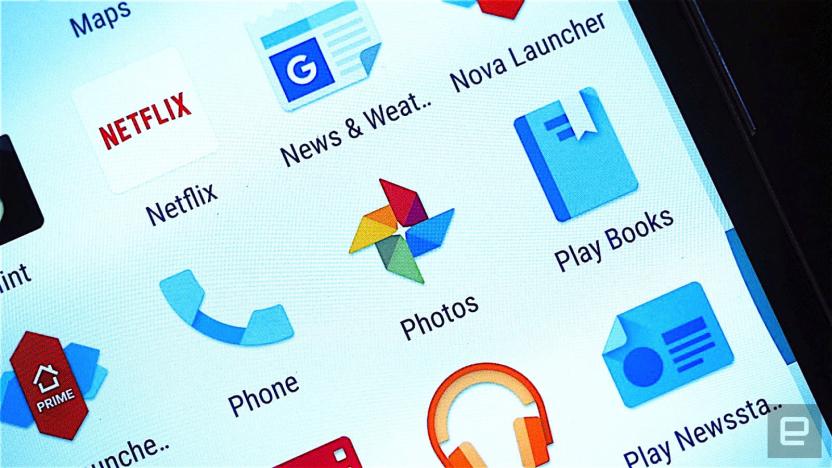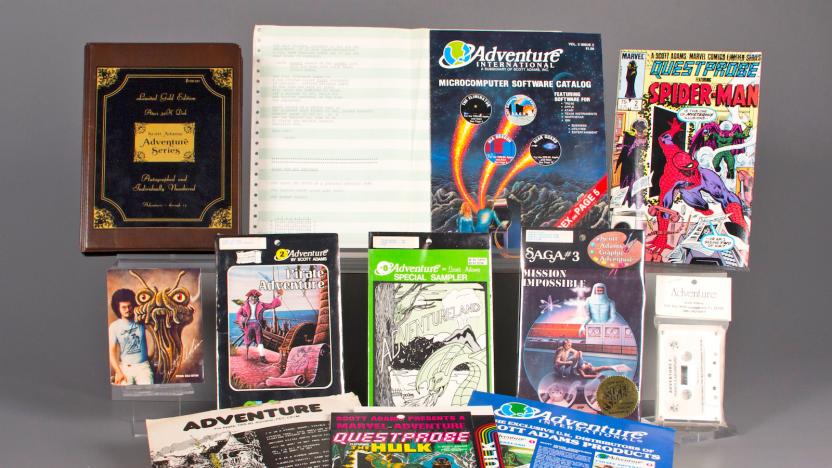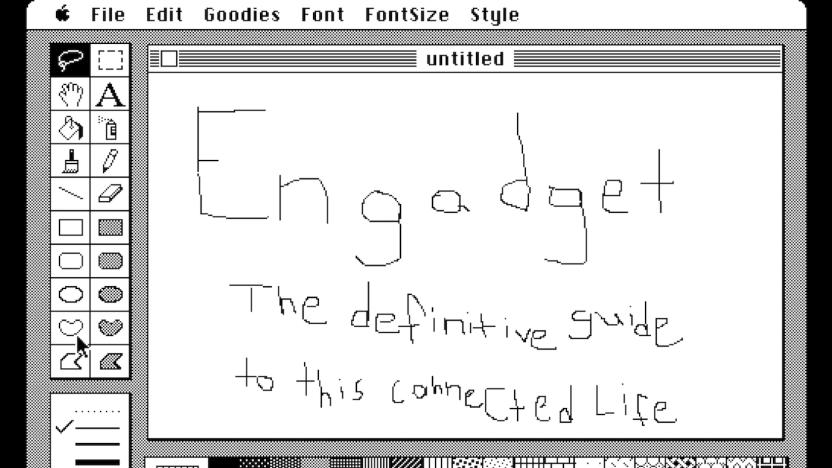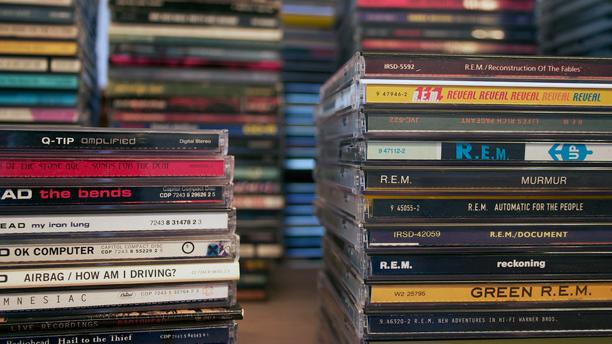archive
Latest

Google Photos adds an archive button to declutter your stream
Google Photos has been gently nudging users to store and share more on its service lately. Earlier this month, the Photos team unveiled some AI-powered sharing suggestions and a Google Lens integration that will make its image recognitions even smarter. But the latest update is a much simpler one meant to keep your photos in Google's cloud without crowding up your main stream.

Instagram helps you hide unwanted photos instead of deleting them
That sloppy Instagram selfie from 2 AM on the walk home. That glut of ice coffee compositions. That once-happy vacation photo with your ex. There are no shortage of reasons to delete your old Instagram missives, whether it's to ensure consistency of your personal brand (ugh), broken hearts, or just old-fashioned shame. Now, however, there's another option -- well, if you're one of the early testers. Instagram is testing a new "archive" option in addition to the typical (still permanent) delete option.

The Strong Museum's latest addition digs deep into gaming history
Video games are a unique, nascent art form and it makes sense to preserve them. While efforts by the Internet Archive have been underway for a while, it hasn't been a priority for the gaming industry to archive their own products. Most archival projects happen thanks to the unpaid efforts of super fans bent on saving their beloved gaming experiences. Today, though, The Strong Museum, also known as the National Museum of Play, announced that Scott Adams, the developer behind 1978's text adventure game Adventureland, has donated a ton of materials from his long career in the industry.

Go back to 1984 with Internet Archive's Macintosh collection
Not content to sit on the sidelines, the Internet Archive recently resurrected something, too. This time, it's a swath of apps, games and software from the original Macintosh circa 1984. That means stuff like Lode Runner, MacOS System 7.0.1, Microsoft BASIC 2.0 and Space Invaders are on offer in their pixelated, black-and-white glory. Just like the old days. Except, you know, these run in a browser window. The Archive says this collection of stuff from 1984 to 1989 is just the first set of emulations from the machine, so it might not be too long before more apps are available.

The Trump Archive is collecting everything he's said on video
Remember that time US President-elect Donald Trump said one thing years or weeks ago, then reversed his position? If your answer is "which of the many, many examples," you've been paying attention -- and now you have a handy database full of speeches, debates, interviews and other broadcasts to trace his evolving opinions. The Trump Archive is live and has over 780 video clips amounting to over 520 hours of footage to date, with more on the way.

The Internet Archive doesn't feel safe in Trump's America
The Internet Archive collects the history of the internet, one webpage at a time, in order to power services like the Wayback Machine, the free e-book site Open Library and the Political TV Ad Archive. It's a non-profit based in the United States, but today, staffers announced plans to establish a copy of the Internet Archive's digital collections in Canada. The decision is fueled by concerns over President-elect Donald Trump's statements about the First Amendment and net neutrality.

Onehundredforty wants to sell you your tweets as arty posters
Tweets are usually forgotten quickly, replaced by the next thing-du-jour -- and frankly, most of us like it that way. However, a startup called Onehundredforty thinks that your succinct observations (or someone else's) can become permanent art posters for your home. "The average lifespan of a tweet is 18 minutes, then it's gone," the company says. "There's way too much magic happening out there to just let them die out in an archive, or even worse, disappear in a feed."

Read the first 13 years of 'Nintendo Power' on Archive.org (updated)
Before the yawning information-spouting chasm of the Internet, there were two ways you could get information on video games: your dubiously-trustful buddies and trade magazines. Despite being a company rag that only covered things coming out on its own consoles, Nintendo Power was one of the best of these publications for its wonderful artwork and community culture. But don't take my word for it: Now you can parse through the first 13 years of the magazine at Archive.org.

Twitter takes down a site that archives popular users' tweets
While Twitter isn't completely opposed to third-party sites preserving tweets, it has its limits: the social network has effectively shut down PostGhost, a days-old service that archived the tweets of verified users with "tens of thousands" of followers. Twitter would only tell us that the site was violating its developer tool policies, such as honoring content as it's displayed on Twitter proper. However, you could also argue that it just wasn't as discriminating as Politwoops is now -- it was targeting anyone with a blue checkmark.

Panasonic teams up with Facebook for 'freeze-ray' data discs
Panasonic has teamed up with others before to push optical disc archive technology, and today it announced a new partner in its quest: Facebook. Because the social network is simply bursting at the seams with future Throwback Thursday moments, it needs a way to store (and occasionally access) "cold data." Enter freeze ray, a disc format the two companies have been working on for a couple of years. Currently Facebook is using the first generation, a 100GB Blu-ray disc-based system, and says the 300GB Archival Disc-based system will be deployed later this year. future plans to move to 500GB and even 1TB discs could provide significant energy and cost savings at data centers, and ensure that the one picture you don't want anyone to see will always be accessible. [Image credit: David Paul Morris/Bloomberg via Getty Images

British Library digitizes George III's massive map collection
King George III was quite the map collector, and his massive catalog of cartographic relics is being digitized by the British Library. In total, the collection encompasses over 50,000 maps, including the Klencke Atlas which is the second largest atlas in the world. It measures 1.8 x 2.3 meters (about 6 x 7.5 feet) and includes 41 maps bound together in a single book. The library is a quarter of the way through photographing the collection, and once it's finished, the maps will be accessible online through its Transforming Typography website.

The AP adds 550,000 old newsreel clips to YouTube
The Associated Press has teamed up with British Movietone to share more than a century's worth of newsreel footage with the denizens of the internet. The pair will upload more than a million minutes of archival clips to YouTube with the intention of creating a "view-on-demand visual encyclopedia" for the world. The 550,000-plus stories range from footage of the 1906 San Francisco earthquake through to the bombing of Pearl Harbor. It's not the first time that a news organization has used YouTube to take its archives online. Last year, British Pathé uploaded more than 85,000 newsreel clips from between 1896 and 1976 to the site. Users can feel free to embed the clips in whatever story they're working on, but we assume that re-editing the work isn't permitted. Which is a shame, because we were hoping for some cheeky dance remixes of the footage of Prince Charles getting frisky at the Rio Carnival. Which, for no reason at all, we've embedded below...

The British Library is fighting to save endangered sounds
For most of us, thinking about museums and archives will conjure up images of physical relics; faded books, paintings and trinkets discovered beneath the soil. But now, the British Library is fighting to preserve something more elusive: sound. With £9.5 million in fresh Lottery funding, it hopes to digitise and release 500,000 rare and at-risk recordings over the next five years. The challenge is that some audio snippets are currently held on old formats, such as wax cylinders and magnetic tape. They're slowly decaying to a point of irreparability, and the equipment required to play them is becoming harder to source. The British Library estimates that 1 million UK sound collections could be lost in the next 15 years, so in January it started a "Save our Sounds" campaign to preserve them.

Google wants you to download your web search history
Wondering what you were searching for online a few years ago? You now have a (relatively) easy way to find out. Google has quietly trotted out an option to download your entire search history. So long as you searched using your Google account, you'll have a permanent record. Of course, this is something of a mixed blessing given how pervasive Google is at this stage. While the archive may help you dig up a keyword you're struggling to remember, something tells us that it'd be all too easy to dredge up embarrassing memories -- we hope you didn't Google your classroom crush.

Of course the UK's depressing tower blocks are getting a digital archive
Where would we be without digital archives? Not playing old MS-DOS games and browsing defunct GeoCities Labyrinth fan sites while we should be working, that's where. And while some institutions are busying themselves preserving such things as classic literature, one is embarking on a far more important task: building a fully searchable image archive of all the UK's miserable concrete housing blocks. The "Tower Blocks - Our Blocks!" project is the brainchild of social and architectural historians at the Edinburgh College of Art, because how else would you manage to snag over £50,000 in Heritage Lottery funding to scan pics of ugly buildings if it didn't have something to do with art? That money will be put towards digitizing 3,500 old photos of high-rises, some of which have long been demolished, and "support local outreach initiatives" to get residents to tell of their experiences within these concrete melting pots.

Library of Congress finds unreleased 'Duke Nukem' code lurking in its catalog
When a video game studio cancels a project, the code tends to stay with the developers or else disappear into the void. Either way, you're unlikely to ever see it. However, the Library of Congress' David Gibson has unearthed a rare gem. While sifting through a stack of games destined for the archives, he found code and media assets for an unreleased PlayStation Portable version of Duke Nukem: Critical Mass. While Sony's many proprietary file formats made it tricky to poke around, homebrew tools were enough to uncover 3D models, music and textures, including those for Duke himself (shown here). And in case you're wondering, this is a first-of-a-kind discovery; to Gibson's knowledge, every other game in the Library has shipped.

Browse 'The New Yorker' archives free of charge for the rest of the summer
Let's face it: We miss out on a ton of great content due to paywalls. After a recent redesign to improve reading via its website across a range of devices, The New Yorker has opened up its archive for the rest of summer free of charge. The repository houses issues dating back to 2007 that will be displayed with the magazine's responsive layout, tidied-up look and larger images. Once the trial is up, the publisher's paywall will be similar to that of The New York Times -- unpaid web visitors can read a set number of articles, with paid subscribers gaining full access. Before now, the magazine allowed unlimited perusal of free stories while those marked as paid content remained locked away. No word on exactly when the free admission period is up, so you'll want to take advantage before the leaves start changing. [Photo credit: Chris Hondros/Getty Images]

The Library of Congress is wrecking CDs to learn how to save them
Like it or not, CDs rot over time -- your well-worn copy of Soundgarden's Superunknown might not play anymore. Just how they rot is frequently a mystery, though, which is why the Library of Congress is currently destroying CDs (including those you donate) in hopes of improving its archival techniques. Researchers are using a combination of artificial aging tests and simple observations to see what factors trigger decay, sometimes with surprising results. As the Library tells The Atlantic, data loss varies widely between manufacturing processes, the lasers in CD players and even individual discs; experimenters can subject two identical copies of an album to extreme heat and lose only one of them.

UK's National Archives now saving tweets and YouTube videos as historic media
Already home to the UK's most iconic national documents from the last millennium, The National Archives is expanding its digital collection by going social. It's begun archiving tweets and YouTube videos published by the UK's ruling parties over the last decade, permanently preserving them as the official public record. Unlike in the US, where the Library of Congress has set about archiving all of America's tweets (and has already collected more than 170 billion messages), the National Archives' sights are firmly set on government accounts. While that may include mundane social updates from the Forestry Commission, HM Revenue and Customs and the Office of Fair Trading, the Archive will also preserve moments of national pride: events including the 2012 London Olympics, the birth of Prince George and the Queen's Diamond Jubilee have all been saved in the digital vault. Right now, the collection includes 7,000 YouTube videos and more than 65,000 individual tweets -- it has the capacity to collect 3,200 tweets at any one time, though, allowing you to trawl announcements of past environmental heath issues, premium bond interest rates and possibly a future British Wimbledon winner at your leisure.

Cloud storage meets old-school archiving with IDrive's new Safe service
An internet connection is usually the only thing between you and your remotely stored data. Not with IDrive's new "Safe" service, however, which is a strange mix of traditional archiving and newfangled cloud storage. For a one-off payment of $100, the company'll send you a physical 1TB hard drive to fill up, collect it from you, and store it indefinitely (with no recurring charge). With 24 hours notice, IDrive will dive into its warehouse, dig out your HDD and let you have at its contents through the magic of the interwebs -- higher pricing tiers are also available for individuals or businesses that require more frequent data dumps. We can almost see why some might prefer their very own HDD as opposed to an anonymous server rack, even if both are technically out of reach. Best to keep some treasured family photos backed-up though -- that flight isn't going to wait 24 hours for you to recover your e-ticket.












